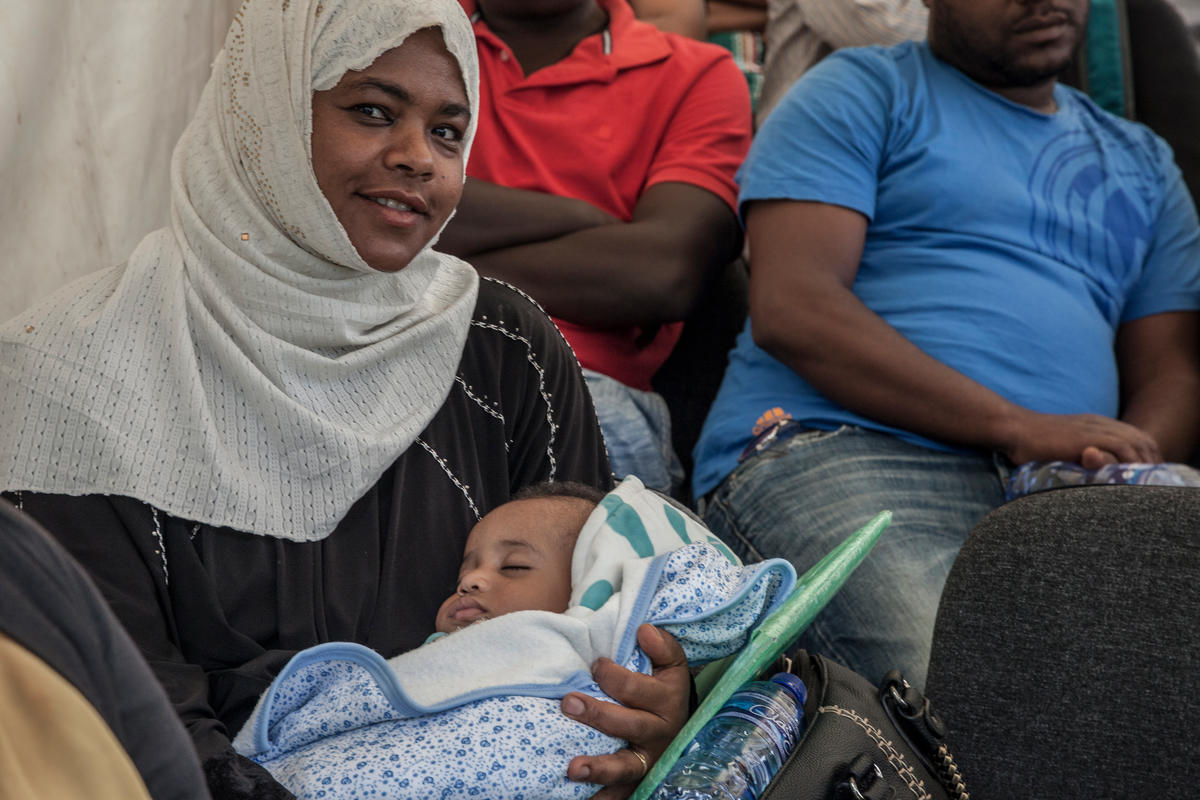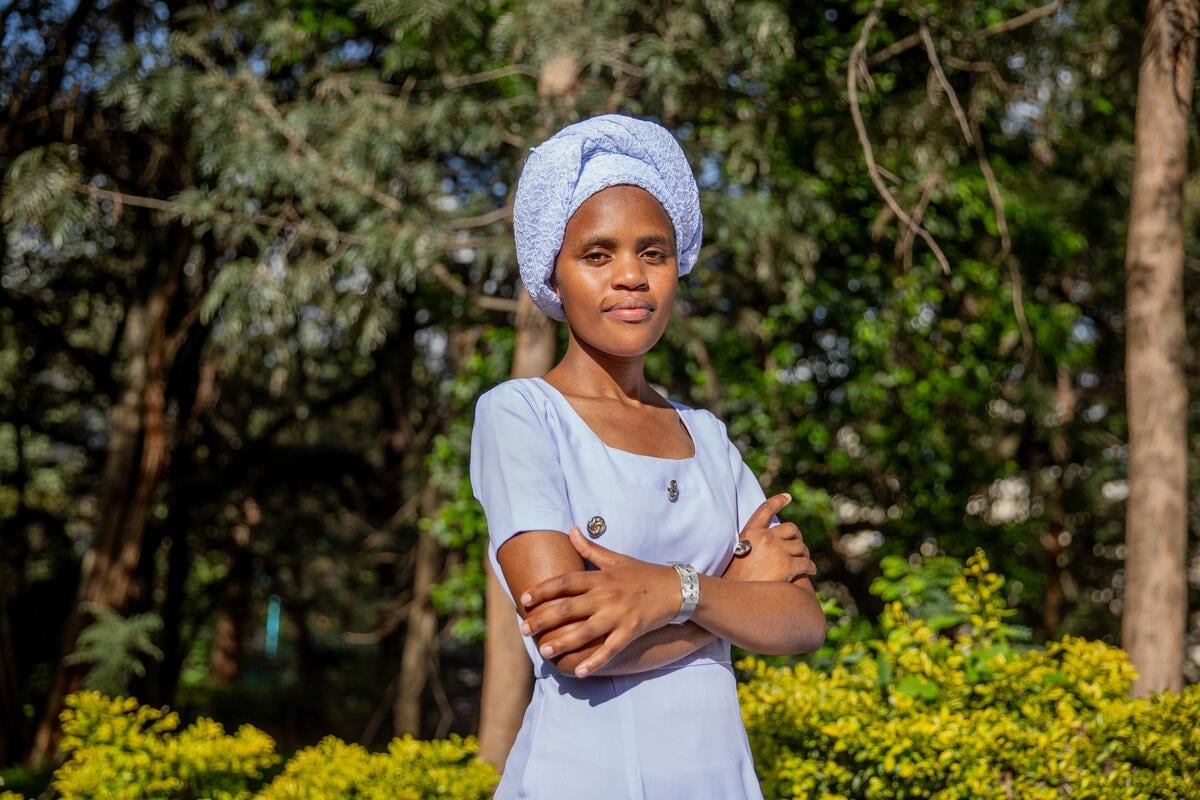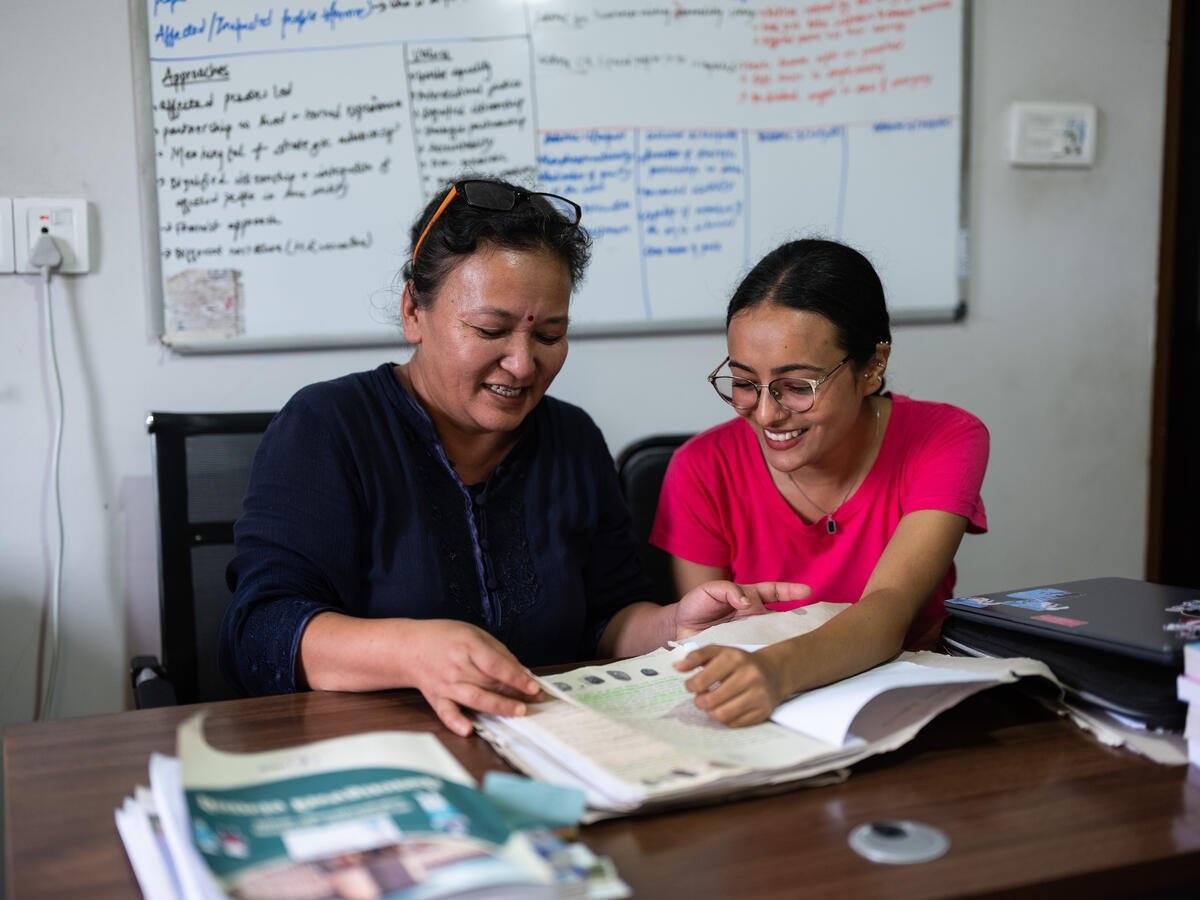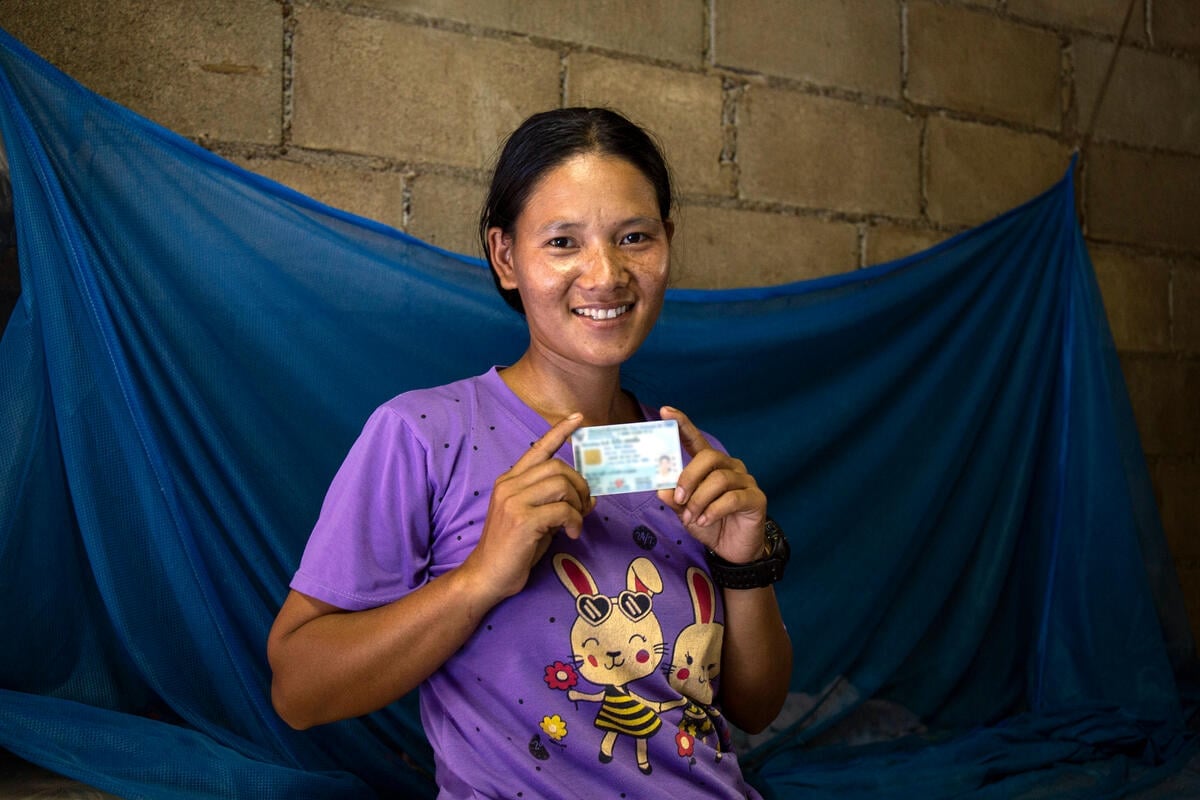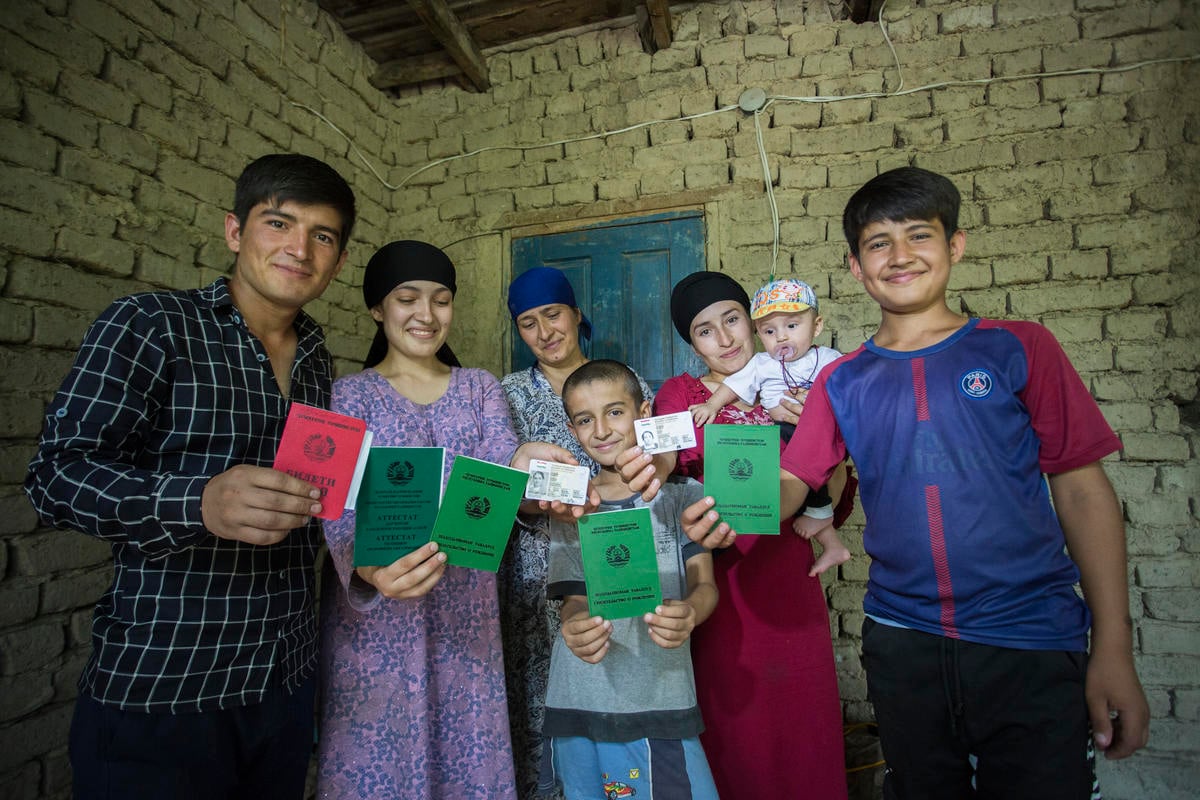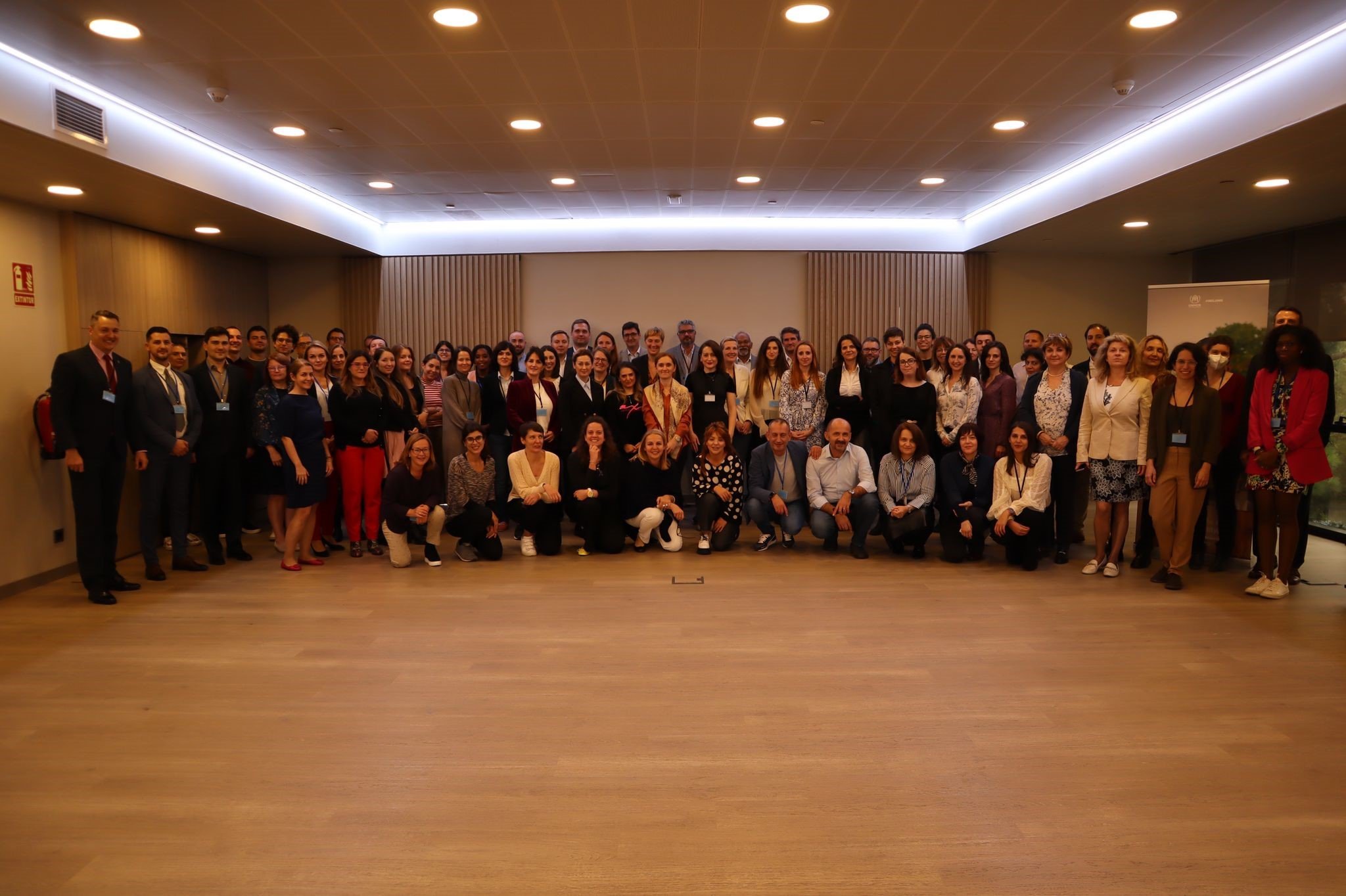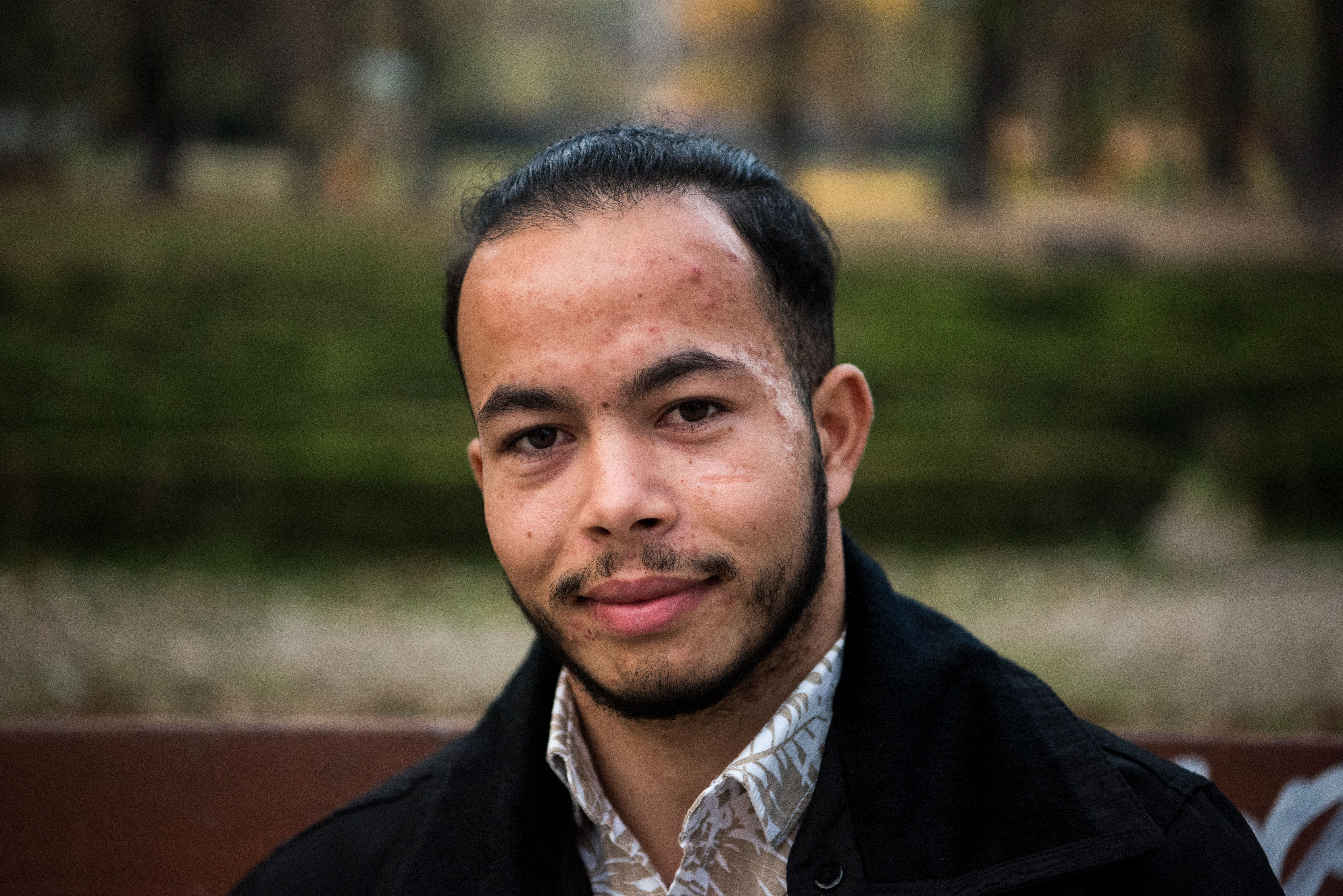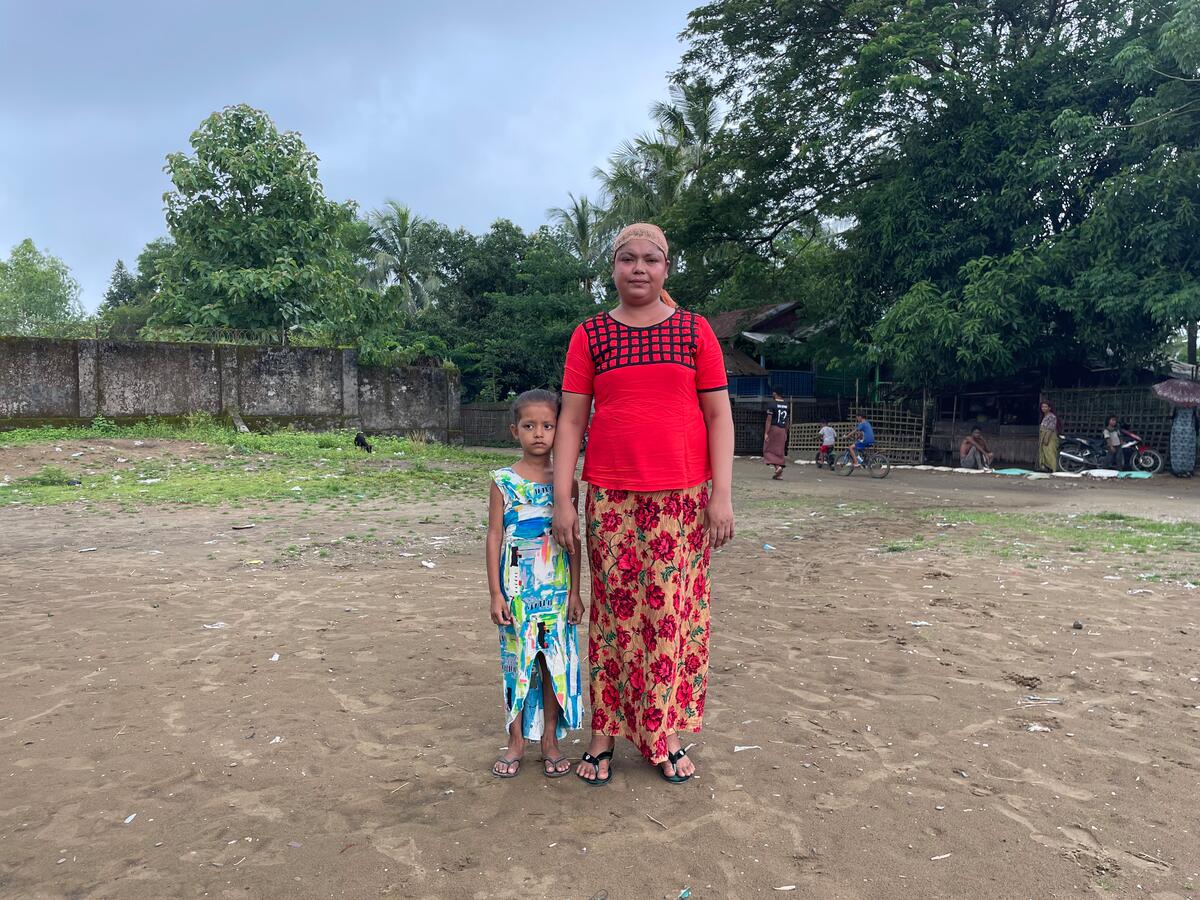New Ethiopia policy helps refugees legally document life events
New Ethiopia policy helps refugees legally document life events
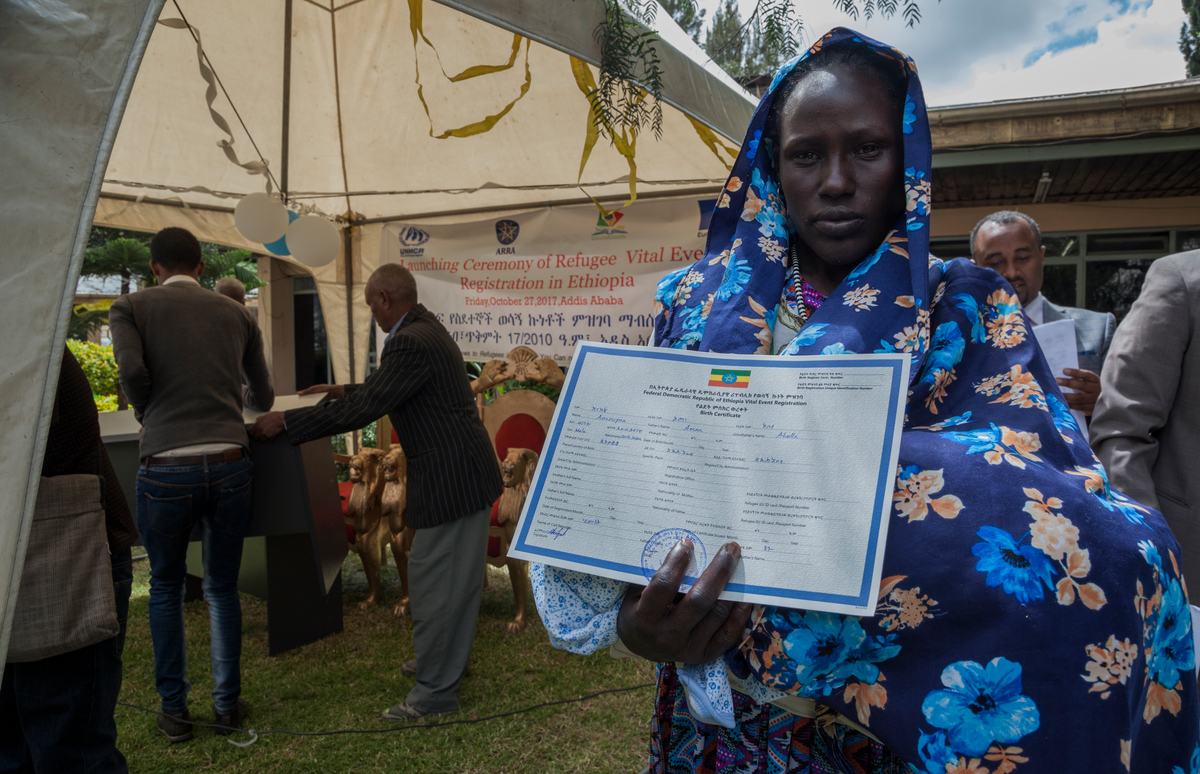
ADDIS ABABA, Ethiopia – Ariat Ochocka Odulla cradles her 18-day-old baby, Angakuny in her arms. Too young to understand what life has in store for him, he is one of the first refugees in Ethiopia’s long history of hosting refugees to receive a birth certificate. Lacking this crucial document for herself and other children, Ariat has experienced first-hand how hard it can be to access basic services as a refugee in Addis Ababa.
When she went to register her daughter at a school in Addis Ababa, she was asked to produce her birth certificate.
“I told them I did not have one because I am a refugee from South Sudan,” she sais. She had to knock on different doors before she was finally helped by the school’s director. He understood her situation and wrote an official letter to the school. “My daughter was only registered in that condition. This is why birth certificates are important.”
Ariat fled her home in Malakal, South Sudan when civil war erupted in 2013. “We saw people dying in our area. The deaths scared us and we had to run away,” she said. She had three children at the time. “I carried the smallest baby in a basket over my head, wrapped my other child on my back and fled for my life,” she adds. Fleeing alongside a group of women with their children and other people injured by bullets, she was separated from her eldest son and husband who fled in a different direction.
Years later, Ariat is now witnessing a crucial turn in her long journey for survival. For her and more than 883,000 refugees living in Ethiopia, access to legal documents recording vital events like birth and death certificates, marriage licenses and divorce decrees means a chance to rebuild their lives and become a part of society.
"These kinds of documents are the only means we have to be identified."
“By ensuring refugees are included in the national civil registration system, the Government of Ethiopia has taken a big step in enhancing the protection environment of refugees in Ethiopia,” said Clementine Nkweta Salami, the UNHCR Representative in Ethiopia, at the launch event in Addis Ababa. Documents were also issued to refugees in each of the 26 camps and other urban areas where refugees reside.
The new policy is part of a commitment made just over a year ago by all members of the UN General Assembly. Ethiopia made nine concrete pledges in line with the Comprehensive Refugee Response Framework (CRRF). The achievement of the Documentation Pledge is a milestone that will help refugees gain access to basic services and opportunities for skills training and employment.
“Previously Ethiopia’s policy was just based on caring for and hosting refugees in the camps,“ said Ato Zenynu Jamal, Deputy Director for the government’s refugee division, “But this current shift is amazing to see. It shows that our consistent commitment to neighbours fleeing conflict, human catastrophes and natural disasters will continue.”
More than half of the refugees in Ethiopia are children below the age of 18. With this historic first for Ethiopia, the future for baby Angakuny and 70,000 other refugee children born here over the past decade will be brighter.
“I am more than happy that my son is among the first South Sudanese refugees here to be recognized and given a legal document,” Ariat said. “These kinds of documents are the only means we have to be identified and have access to the few services we get. This is like life for us, it is our identity.”






